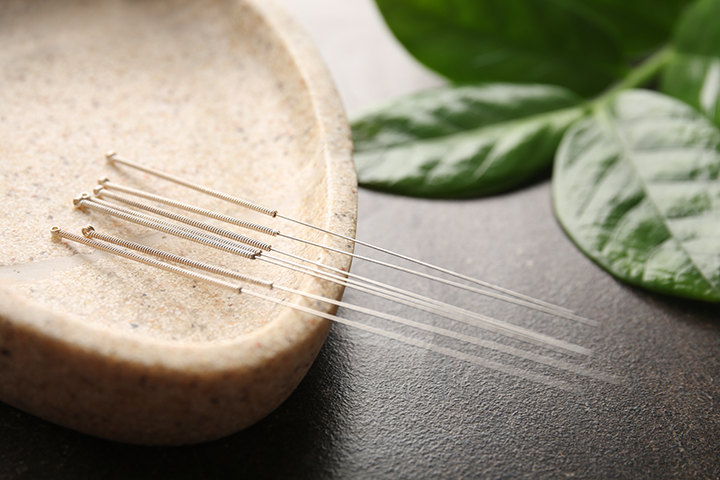Acupuncture is a time-honored practice that originated in China, and has since gained popularity worldwide as a complementary medicine approach for a wide range of health concerns. Acupuncture is often associated with the treatment of pain, however, there is a growing body of scientific evidence supporting its use for many additional health conditions.
How does acupuncture work scientifically?
Acupuncture is based on the concept of qi (pronounced “chee”), which is believed to be the vital energy that flows through the body along pathways known as meridians. According to Traditional Chinese Medicine (TCM), a disruption in the flow of qi can lead to imbalances and health issues.
While the concepts of qi and meridians may be difficult to explain scientifically, research has shown that acupuncture has a number of physiological effects on the body that can explain its effectiveness.
For example, acupuncture has been shown to stimulate the release of endorphins, natural pain-relieving substances produced by the body. Acupuncture has been found to modulate neurotransmitters, like serotonin and dopamine, which play a role in mood regulation.
Evidence-Based Acupuncture Techniques
Curious about acupuncture’s scientific evidence? Several acupuncture techniques have been extensively studied by the National Center for Complimentary and Integrative Health (NCCIH) and shown to be effective for specific health concerns. Here are five examples from that research:
- Acupuncture for Pain Management
Research shows that acupuncture effectively relieves the pain associated with various conditions, including migraine headaches, osteoarthritis, and menstrual cramps, to name a few. This relief occurs through modulating the nervous system, reducing inflammation, and promoting healing. - Acupuncture for Stress and Anxiety
Acupuncture has been found to be effective in reducing stress and anxiety. Studies have shown that acupuncture can help regulate the hypothalamic-pituitary-adrenal (HPA) axis, which is involved in the body's stress response. Acupuncture also has been found to increase the release of oxytocin, a hormone that promotes relaxation and reduces stress. - Acupuncture for Digestive Issues
Acupuncture has been shown to be effective in alleviating digestive issues such as nausea, irritable bowel syndrome (IBS), and acid reflux. Research has shown that acupuncture can help regulate gastrointestinal motility, reduce inflammation, and improve gut function. - Acupuncture for Sleep Disorders
Acupuncture has been found to be effective in improving sleep quality and treating insomnia. Studies have shown that acupuncture can help regulate the production of melatonin, a hormone that plays a role in sleep regulation and promotes relaxation. - Acupuncture for Fertility and Women's Health
Acupuncture has been shown to be beneficial for fertility and women's health issues such as menstrual irregularities, polycystic ovary syndrome (PCOS), and menopause symptoms. Research has shown that acupuncture can help regulate hormonal imbalances, improve blood flow to the reproductive organs, and reduce stress, impacting fertility and women's health.
Research on Acupuncture for Other Conditions
Patients also see an improvement in conditions such as urinary incontinence, asthma, and seasonal allergies after the use of acupuncture, according to NCCIH research.
- In a rigorous 2017 study of 500 women with stress incontinence, electroacupuncture treatment over six weeks led to a significant reduction in urine leakage, with two-thirds of the participants experiencing a 50% or greater decrease in leakage.
- A German study in 2017 involving 357 participants with asthma found that adding acupuncture to routine care was associated with better quality of life than routine care alone.
- A study in 2015 evaluated 13 other studies of acupuncture for allergic rhinitis and found that acupuncture may help relieve nasal symptoms, lower medication scores, and reduce blood levels of immunoglobulin E (IgE), an antibody associated with allergies.
Become an Acupuncturist at Bastyr
Evidence-based research continues to show the effectiveness of acupuncture in treating various health conditions, making it a valuable and recognized career path that offers rewarding opportunities to make a positive impact on people’s health and well-being.
At Bastyr, you’ll have the opportunity to learn from experienced faculty members, gain practical experience through clinical internships, and join a community of like-minded individuals who share your passion for natural medicine. So if you’re considering a career in acupuncture, Bastyr University could be the perfect place to start your journey.
Discover how you can transform your career in our guide, Acupuncture and the Science of Natural Healing: A Guide to Graduate Degrees.

